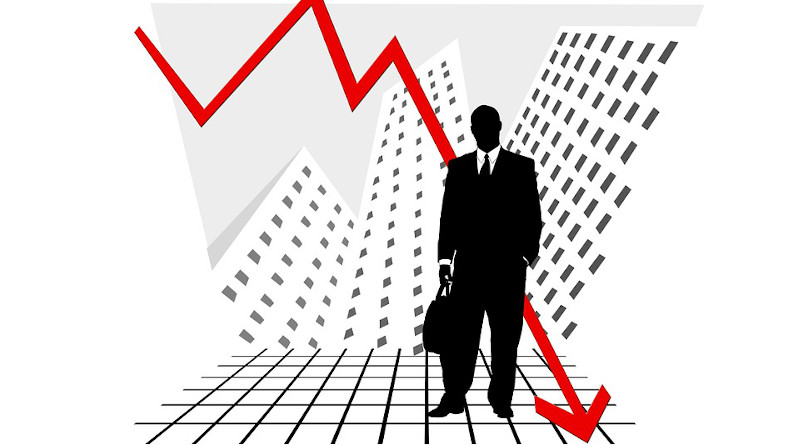US Will Have To Prepare For Extended Economic Depression – Analysis
As the US entered August, the economic damage from the necessary social distancing and closure protocols to contain the spread of the coronavirus disease (COVID-19) began to hit. The US economy is suffering an even bigger shock than after the 9/11 terror attacks or the 2008 financial crisis. What will happen next for America’s economic scene? It appears a depression may be here because of the pandemic and poor policy decisions.
Projections show that the country’s gross domestic product won’t return to pre-pandemic levels until early 2023, while it could also take years for the employment level to return to where it was before COVID-19 reached America.
In April, the US reported that the number of Americans seeking unemployment benefits had surged for a third successive week, bringing the total over that period to more than 16 million. In addition, the US lost 22 million non-farming jobs in the early months of the pandemic. The US Federal Reserve said it would unleash an additional $2.3 trillion in lending as restrictions on activity to help contain the coronavirus forced many businesses to close and put about 95 percent of Americans on some form of lockdown.
With the pandemic continuing and jumbled geography resulting in the dividing of the country into infected and non-infected zones, the government’s Paycheck Protection Program for many small businesses will fail and millions of jobs in restaurants and personal service firms will disappear in the short run. Given the lack of a vaccine, it will take time for consumer behavior to see any semblance of normality. The pandemic is bringing with it an economic depression that may last for two to three years minimum. The year 2023 will be key for the economy and the country as the pandemic runs its course, hopefully with the help of a workable and long-lasting vaccine.
For now, the economic strain on America will grow in the coming weeks and months. With businesses taking on a huge amount of debt, the repayment of that debt will take priority over new capital spending. State and local budgets are suffering a revenue collapse that, even with federal assistance, will take years to recover from. As the pandemic continues, trends that were already in motion will be accelerated, particularly the growth of online retail, telecommuting, and the alteration of America’s labor pool in new and dramatic ways. Unemployment looks to be a real challenge in the coming months.
Now that some businesses are reopening and calling back furloughed workers, the COVID-19 recession may already be over — but the depression has barely begun. The American economy is growing again but, with 2 million people filing for unemployment checks and about 30 million already unemployed, there is a huge struggle ahead. The depression is showing that millions of workers are losing their jobs permanently. Thousands of small businesses are closed permanently or operating at only a fraction of their profitable level. Debts are mounting and incomes are not growing fast enough. State and local governments are slashing jobs and services. Only massive, but temporary, federal support is preventing millions of families from falling into poverty.
America’s coronavirus pandemic is reaching new heights after a bungled reopening. States experiencing rapidly growing COVID-19 case numbers are already seeing softer growth and even economic contraction in some cases. A second closure and mandatory stay-at-home orders may become necessary in some parts of the country. The impact of a second lockdown on the American economy will function as a negative force multiplier on retarding economic growth. But closures will be medically necessary and must be adhered to if the US is to successfully emerge without having to go into a third lockdown.
There is also the period between the US election on Nov. 3 and the inauguration on Jan. 20, 2021, that still needs to focus on the depression and the pandemic. With a challenge from the Trump administration over the election outcome a possibility, it is essential that the incoming administration moves fast. A “hanging chad” scenario — where the announcement of the election’s final result is delayed because of a legal case, as occurred in 2000 — could play havoc with America’s recovery.
A new administration would have to move quickly and effectively to reverse the current dire situation, but of course a new Democratic leader would probably, after four years of Trump, find resistance to transition. A potential Joe Biden administration may have to implement lockdowns to control the pathogen spread in a subsequent wave, depending on the model. How will that policy action be received by an American populace suffering an economic depression?
Americans need to prepare now for the ongoing depression of the 2020s, if they haven’t already. This depression will boost domestic violence, discontent and urban disturbances when new tragedies occur in America’s fractured landscape. When a new administration arrives, then a new focus can bring fruitful, nation-building results that will possibly help tens of millions of Americans. In the meantime, however, the aid requirements in the depths of US inner cities or rural factory towns are sadly not going to be met in time.

